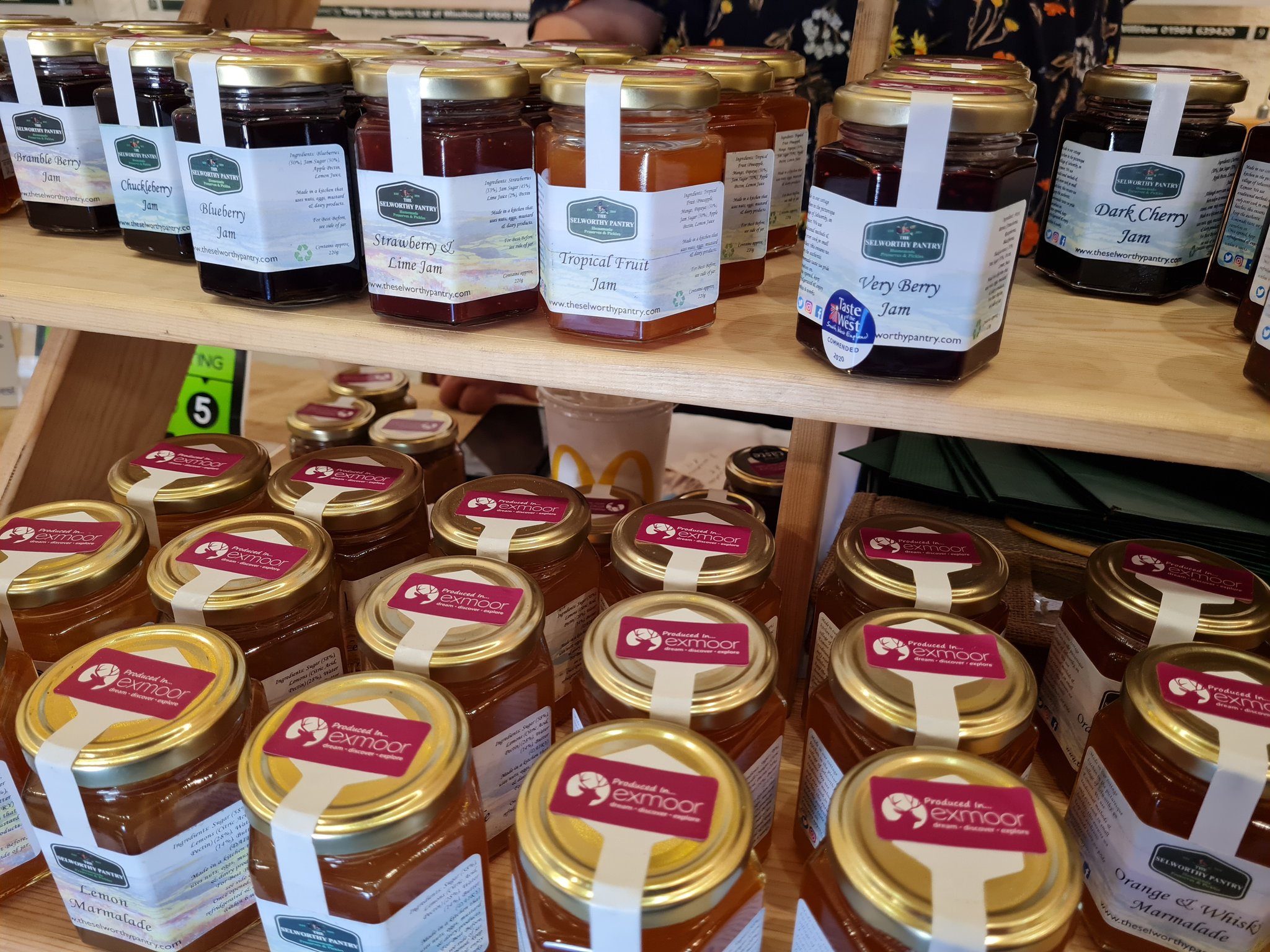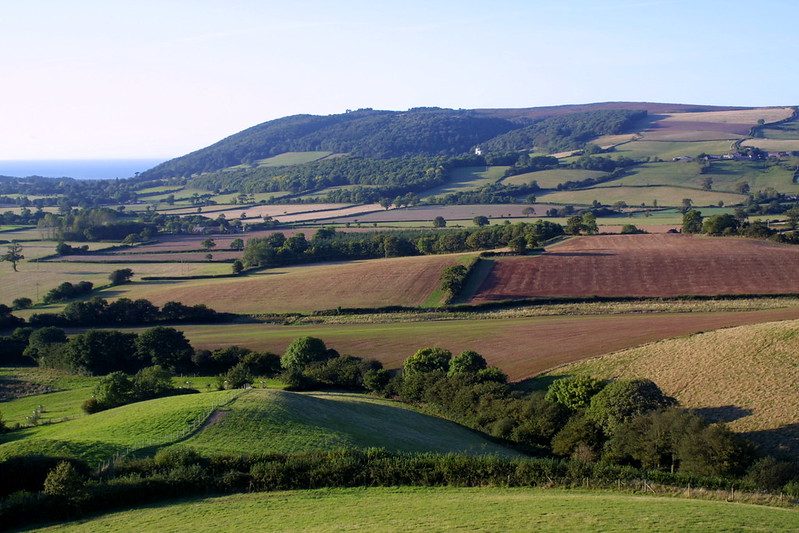Climate Action
'The Race to Zero' Taking on the challenge of Climate Change
From planting new woodland to locking up carbon in our peatlands we're taking positive action to limit climate change and ensure Exmoor is resilient and thriving now and in the future.
We’ve made a pledge for the planet - To join the ‘Race to Zero’.
The ‘zero’ being ‘zero carbon’ and the ‘race’ an initiative backed by the UN and global climate leaders. The future of our natural world, rests on ‘decarbonisation’ and National Parks have a crucial role to play.
The world’s top experts estimate the worst effects of climate change can be avoided by keeping global warming below 1.5 degrees. And we, along with many others, have joined the UK government in declaring a climate emergency to help meet this target.
Exmoor National Park Authority members have agreed an action plan to work towards the Authority being carbon neutral by 2030 and are working with the UK’s 15 National Parks on coordinated action to tackle climate change and biodiversity loss. We’re among a growing list of protected landscapes and marine environments across the world who are calling on world leaders to support this vital work.
Our UK National Parks may not be vast open wildernesses like the Amazon rainforest or Yellowstone National Park. But they are places where the balance between nature and people is championed, where virtuous circles have existed between local communities and the landscape for centuries, and where the blueprint for a sustainable future can be researched and pioneered.
Exmoor's Carbon Footprint
Exmoor National Park has commissioned a report designed to provide a robust and consistent evidence basis for climate action . You can read the report and associated information here.
Here are some ways Exmoor National Park is collaborating to tackle climate change, along with simple steps everyone can take, both at home and away. Join our call to action and inspire others using #UniteForNature.
By acting together, we can make a difference.
What We're Doing
Peatland restoration
In the UK it is estimated there is over 3 billion tonnes of carbon stored in the peatlands, equivalent to all carbon stored in the forests in the UK, Germany and France together. 2630 hectares of carbon capturing peatlands have so far been restored through the Exmoor Mires Partnership.
And there’s more good news! The South West Peatland Partnership have recently been awarded a further £9 million to extend this work across Exmoor, Dartmoor and Bodmin saving the equivalent of 652,625 tonnes of CO2.
Woodland creation

As well as being beautiful natural structures, trees provide so many environmental benefits. Capturing carbon, improving water quality, they’re a sustainable building material and tool for flood management. In 2023, 13,000 trees were planted at Bye Wood near Winsford. In 2024, we’re planting 6,000 trees to create a truly sustainable woodland called Kings Wood in Simonsbath. it forms part of a drive to increase tree cover across Exmoor from 13.5% to at least 17% by 2050 – as recommended by the government’s climate advisors. It is one of the biggest woodland creation projects to have taken place in the National Park in the past 15 years.
We’re committed to being plastic free – using fully recyclable, reusable and compostable tree planting materials wherever possible. Even our tree nursery construction itself is built entirely from timber from ENPA managed woodlands and concrete foundations have been eschewed in favour of cast aluminium “ground screws”, saving 4.5 tonnes of CO2 emissions.
Looking after the trees you already have is just as important. We have recently been highly-commended by the Royal Forestry Society for the careful way we manage our woodlands. This includes removing small amounts of timber to encourage natural regeneration, which benefits wildlife while providing a steady supply for making all the signs, stiles and gates on our rights of way network. Often the journey from wood to path is less than 25 miles.
Did you know you can find temperate rainforest in the National Nature Reserves of Tarr Steps, Hawkcombe and Horner Wood?It's an even more specialised habitat than tropical rainforests, with all kinds of biodiverse plants and lichens growing on the trees. Practical conservation on Exmoor has safeguarded vulnerable rainforest sites across Somerset and Devon by clearing invasive species, letting more light in through the canopy and creating a future generation of veteran trees.
Green economy
It's no exaggeration to say that the next 10 years will define our future on this planet, and Exmoor’s rural economy is key to driving that response locally.
Read our new Rural Enterprise Exmoor Vision to learn about the latest trends and find out how local businesses, communities and local bodies are cooperating to rise to the challenge.
Sustainable solutions
Planning decisions are one of the main tools National Parks have to protect our precious landscapes, wildlife and heritage, while working to sustain vibrant communities for future generations.
Through our Local Plan policies, we support development that harnesses renewable energy and sustainable water sources, while protecting our precious habitats and the special qualities that define Exmoor.
Did you know that the hydroelectric units at Beasley Weir and Glen Lynn Gorge together produce enough clean energy to power around 500 homes a year?
Working towards Net Zero
As an organisation we currently produce around 170 net tonnes of carbon a year. The majority of this is from the fossil fuels used to power our buildings and vehicles, a fact we’re urgently working to change.
Our climate action plan sets out our trajectory for reaching net zero by 2030, starting with some practical steps, like changing all our lighting to LED light bulbs and further improving the energy efficiency of our buildings, as well as reducing our journeys and beginning the switch to electric vehicles.
From estate work (making our National Park signposts and gates) to school activity days, there’s been a switch to electric vehicles and tools, installation of EV charging points across the National Park and a move away from fossil fuels.
Our Pinkery Outdoor Learning Centre already benefits from wind and solar power. We’re aiming for it to be the first of our buildings to become fully net-zero, with an ambition turn it into a centre of excellence for sustainability and renewable technologies.
The latest installation is a biomass boiler, funded by a ‘Public Sector Decarbonisation Scheme’ grant, which means the centre can produce electricity from logs, from our own sustainably managed woods.
It’s replaced outdated fossil fuel systems and will supply renewable heat and hot water for the whole site, including the classrooms and accommodation units.
Nature friendly-farming
Working in partnership to support farmers and land managers to do more for nature alongside vital food production contributes to healthy ecosystems that store more carbon. It’s estimated 1 million tonnes are stored in Exmoor’s hedgerows and free-standing trees alone.
If you own or manage land in or near Exmoor, sign up to our Sowing the Seeds Project to network with others interested in restoring wildflower meadows, or see if the Farming in Protected Landscapes programme could help you deliver enhanced benefits for climate, nature and people on your land.
Get information on the latest schemes from your local Farming and Wildlife Advisory Group (FWAG Southwest).
Habitat restoration
Our Nature Recovery Vision sets out an ambition to see at least 75% (51,750ha) of the area of the National Park in nature-rich condition by 2050.
This is the first time we as an organisation have set such a target for nature recovery, but it’s a goal we’ve been working on with our partners for many years, from our pioneering ENNIS project leading the way with chemical-free methods of invasive species control, to our work with Plantlife to safeguard Exmoor’s rare ‘Atlantic’ rainforests. Notwithstanding work by many private landowners to enhance their land for nature and by the National Trust and others to bring beavers and water voles back to some of our waterways.
Taken together this makes it a very exciting time for nature recovery on Exmoor.
Natural regeneration
While striving to put back lost habitats, we’re also keen to support ways of nature doing what nature does best. By 2030, we’re aiming for 10% of the National Park to be conserved as wilder areas, where nature and natural processes are allowed to take their course.
Porlock Marsh is one example of this in action, resulting from a decision to ‘let nature take its course’ when the shingle ridge protecting the area from the sea was breached in a storm in 1996. It remains today a SSSI and haven for wildlife.
What you can do
Save water
Water is a finite resource that is costly and energy-intensive to collect, treat and distribute, especially in a hilly and dispersed region such as ours. Summers are predicted to get drier and winters wetter, with more intense heavy rainfall. Now more than ever, we need to do everything we can to help nature out. Every litre of water saved is a litre left in the environment. The less water we use, the more we can keep our rivers and streams flowing and nature thriving.
Check out these water saving tips from South West Water.
Help us plant more trees
We need more green-fingered volunteers to help us plant and grow the trees of the future on Exmoor. Here’s how you can help:
- Help us create our new tree nursery by signing up to collect and grow tree seeds.
- Volunteer at one of our tree planting events.
- Dedicate a tree through the CareMoor Woods & Trees Appeal.
Sign up to our CareMoor supporters newsletter to be kept up to date with the appeal .
Buy local
Less food miles means a lower carbon footprint and often avoids packaging, as it’s not needed to protect and keep food fresh. It supports our local communities too and the way farming on Exmoor helps to care for the landscape.
Find a list of local producers on the Visit Exmoor website or for Community Supported Agriculture (CSA) in the Porlock area, check out Good Vibe Veg.
Look out for sustainable products in shops and our National Park Centres.

Save energy
Turn down the heating and put on an extra layer, only use hot water when necessary and measure out the cups when you boil water.
On Exmoor there is a plentiful supply of sustainable wood, so lighting the log burner may be a greener and more cosy option than gas or oil heating. Solar and wind power, air source heat pumps, green energy suppliers and improved insulation are other ways to cut emissions.
Check out our travel pages for days out on Exmoor to help limit car journeys. The Count Us In campaign has more great practical tips if you’re not sure where to start.
Take community action
Leading research points to a tipping point needed for social change, that happens when 25% of people take a stand.
Around Exmoor groups are coming together to try and change things for the better. Here are some to look out for if you want to be part of it:
- Devon Climate Emergency
- Plastic Free Exmoor
- Wildlife Trusts Wilder Communities
- Lyn Climate Action
- North Devon Biosphere pledge for nature
Support our farmers
Many of our local farmers are small-scale producers championing sustainable approaches that work in harmony with nature. You’ll find grass-fed beef and lamb, organic fruit and vegetables, homemade jams and chutneys and deliciously sweet local honey among the many local delicacies.
Our #EatExmoor campaign aims to celebrate the many benefits of local food and the role they play in sustaining the landscape. Look out for the 'Produced on Exmoor' branding in shops around the National Park.

Volunteer
Join a beach clean, help with conservation work or sign up to our UK National Parks Look Wild project on the iNaturalist App. Connecting with nature feels great and helps give something back for future generations.
From practical conservation to research, leading guided walks to undertaking wildlife surveys, find out if our volunteering opportunities are for you.
CareMoor

There are many worthy causes working to tackle climate change and nature loss, but if you’re looking to make an impact locally then consider donating to CareMoor for Exmoor. Your donations help support important conservation projects across the National Park, such as the new 12-hectare woodland we’re creating this year at Bye Wood.
Consider dedicating a tree or donating a gate on our rights of way network to celebrate a special event or loved-one.
Our CareMoor Woods and Trees Appeal is particularly supporting plastic free tree planting methods, as part of a drive to increase woodland cover on Exmoor towards the recommended 17%.

